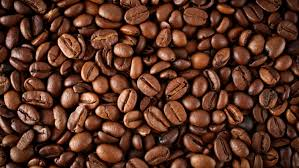I’m very fortunate to have been given some time by my Head to think about how we teach more able students and to make some informal networks of colleagues and schools who might be interested in sharing ideas. Let me know if you are interested.
Latte
One key stopping off point for me last week on this Learning Journey was a conversation with the estimable @nickdennis. He urged me to read better books. One of the welcome offshoots of the TeachMeet and social media explosion of teacher interaction in recent years has been a growth of book publishing, adding hugely to the range of voices and experiences for us all to absorb and draw benefit from. Yet, some of these books offer caffe latte: pretty, frothy, packaged to perfection with illustrations and big-name endorsements but little substance. I’ve just caught up with one such work from last year as part of my travels. Written by a highly-regarded blogger and Twitter name, it promises fresh insight into teaching and learning and a stock of practical advice. Instead I found the stock archetypes of the new genre: asymmetrical saucer (grrrrr) (easy targets of ‘learning styles’ and ‘left-brain/right brain’ thinking), needlessly long spoon (Reader’s Digest-style anecdotes about past students and how they came good), pointless extra biscuit (pop psychology and sports metaphors abounding, typically relating to Michael Jordan and failing-but-never-giving-up) and an excess of froth with gratuitous logo/heart on the top (the feeling that I’ve read this before somewhere). All with a slightly puzzling aftertaste.

Espresso
So Nick has stirred me up and put me on an espresso diet ahead of the Wellington Festival of Education, which I am looking forward to this week. He has set me some Anders Ericsson on deliberate practice and mastery as homework, but in the meantime I am sampling the rich brew of Dylan Wiliam’s new book, Leadership for Teacher Learning (2016). Of course, it is unfair to compare such a heavyweight research-based tome with the type of book I’m stereotyping above: I’m a sucker, too, for the new and glossy and want to read those I follow. I guess the simple point is that I need both. I haven’t got the time and don’t want to spend the dollars to get behind the paywalls to read academic psychology journals, so Dylan Wiliam will do very nicely for the moment.
Here’s two Arabica moments from Wiliam’s first chapter:
It seems to me that a good guiding principle for the design of elementary schooling is that it should help children find their passion- the thing they love to do. For me, the whole idea of a school is that it exposes children to things that they would not otherwise come across. Schooling should, literally, broaden the mind.
This should include art, music, dance and drama – and Wiliam quotes Sir Ken Robinson approvingly in this context. So far, no different to the cappuccino with sprinkles, you aver. No. What adds to the flavour is that he then goes on to cite several pieces of research indicating a connection between engagement in the arts with improved learning in Maths and reading, and with success with innovation in STEM subjects. I have to take on trust that the research has been peer reviewed and has produced findings of merit but, with that caveat in my coffee, I’m happy with the flavour.

Post hoc ergo propter hoc
Secondly, in the search for the ultimate self-roasted single brew, or just something better than we currently have, Wiliam dissects ‘policy tourism’. PISA scores have proved controversial for politicians, educationalists and teachers over the years. Remember Finland in 2003? Shanghai in 2009 and 2012? Surely those education systems must be better than ours and must be doing a lot of things right to produce scores which are so much higher for their fifteen-year-olds? Perhaps with my interest in able student provision, I can find an answer, the answer there? No. Without in any way criticising those countries’ education provision, Wiliam argues that cherry-picking particular features of those systems and using them as levers of reform is wrong. We may identify the wrong features causing success, and we are assuming that any of those causal factors which we did, perchance, identify correctly would work for us. Post hoc ergo propter hoc, as they say in any self-respecting coffee house.
So, thank you Dr Dennis and Professor Wiliam from Dr Massey. You’ve helped clear my head and reawakened my taste buds for what, I’m sure, will be a rich diet of workshops and lectures later this week. If any colleagues would like to get in touch about developing formative assessment in the classroom (Chapter Four, coming up) please do. Especially if you are at Wellington Festival of Education either day this week: the coffee’s on me.

